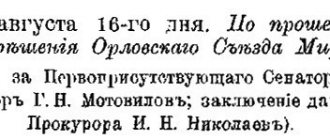The picture was taken from the Internet
Greetings, my dear readers!
We kindly ask you to like and leave your comment under this article, your opinion is very important!
Almost every citizen can find himself in the role of a witness; in this regard, it is necessary to know and remember the basic rights and responsibilities of a witness at the time of the investigative measure.
The current criminal procedural legislation, represented by the Code of Criminal Procedure of the Russian Federation, establishes that when carrying out certain investigative measures, the mandatory participation of two attesting witnesses is necessary, but in certain situations and conditions it is not so easy to find attesting witnesses. Most citizens simply refuse to participate in investigative activities in the role of a witness, since it takes a certain amount of time, which cannot be compensated to the citizen in any way, therefore, most often, students of law universities are involved in investigative activities as witnesses, especially for students of criminal law; Participation in the role of a witness in investigative activities is a visual aid for the production and conduct of one or another investigative activity.
Who is a witness and what is his procedural status?
Ozhegov's explanatory dictionary understands a witness as a person who is involved by the investigator or the one who conducts the inquiry during an inspection, search, inventory of property to attest to the facts.
What does the criminal procedure law, represented by the Code of Criminal Procedure of the Russian Federation, say?
The Criminal Procedure Code of the Russian Federation gives a clear definition of a witness: “A witness is a person not interested in the outcome of a criminal case, who is involved by the inquirer or investigator to certify the fact of an investigative action, as well as the content, progress and results of the investigative action.”.
Based on the definition given by the legislator, we can deduce the characteristics characteristic of an attesting witness:
- 1) a witness is always a person who is not interested in the outcome of the criminal case;
- 2) a witness is always involved by the investigator or interrogating officer to carry out investigative actions;
- 3) the participation of an attesting witness in investigative actions is due to the function of public control, which is expressed in the fact that the attesting witness certifies the fact of the investigative action, as well as the content, progress and results of the investigative action.
The legal regulation of the procedural status of a witness is enshrined in Art. 60 Code of Criminal Procedure of the Russian Federation. For your information about this article, I leave a link to it: More details ➤.
What is the difference between a witness and a witness?
The concepts of “understander” and “witness” are very different, despite their similarities. A witness is a person who is invited as a supervisor over the ongoing investigative actions. In this case, the following requirements are imposed on the witness:
- This must be an adult;
- He must have no mental illness;
- He should not be related to executive authorities (either personally or through relatives and friends);
- He should not be interested in the outcome of the case to which he is involved.
In this case, a person becomes a witness on a voluntary basis at the request of executive branch employees.
The main difference between an attesting witness and a witness is that the former monitors the correctness of the investigative actions, and the latter directly monitors the crime. In this case, a witness can be any person who was nearby during the crime, including a relative of a participant in the case, with mental disabilities, a minor, and so on. There are no legal requirements for a witness.
It is important that a witness can become a witness, after which he will have the rights and obligations of individuals with a similar status, which are enshrined in the Criminal Code of the Russian Federation.
A witness can become a witness, for example, if he was called to supervise an inspection of a suspect’s apartment, during which prohibited items (weapons, drugs, stolen items, etc.) were found.
Basic rights of a witness, regulated by criminal procedure legislation
Before starting an investigative action, the investigator or interrogator must explain to the witness his rights and obligations, as well as the purpose of the investigative action and responsibility for failure to fulfill his procedural duties.
A witness has the following rights:
- 1) the witness has the right to participate in the investigative action (for example, inspection of the crime scene, search) and make statements and comments regarding the investigative action, which must be included in the protocol;
- 2) the witness has the right to become familiar with the flow of the investigative action in which he participated;
- 3) file complaints against actions and inactions, as well as against decisions of the inquiry officer, the head of the inquiry unit, the head of the inquiry body, the inquiry body, the investigator and the prosecutor, which limit his rights.
Below, we note that a citizen cannot be forced to participate in an investigative action in the role of a witness, since participation or non-participation in an investigative action is solely the will of the citizen, this is his right, and not his duty.
Who can become an attesting witness?
Witnesses are ordinary citizens who were invited by investigators to participate in investigative activities . These are completely random and strangers. They are in no way interested in the ongoing investigation .
And they are needed in order to confirm the data obtained during investigative activities. That is, they act as a kind of witnesses. Not just by chance, but by special invitees. And their participation is formalized in documents.
Any person can become a witness. The exception is minor citizens, as well as employees of law enforcement and investigative agencies. You also cannot invite relatives of the participants in the process or other interested parties.
These restrictions are imposed to ensure that all activities are conducted with the utmost fairness and openness . Otherwise, the choice of applicants is not limited in any way. Most often, neighbors or just random passers-by are invited.
The main duties of a witness, regulated by criminal procedure legislation.
A citizen who participated in the investigative action as a witness:
- 1) does not have the right to avoid appearing when summoned by an inquiry officer, investigator or in court;
- 2) does not have the right to disclose the data of the preliminary investigation, but only if he was warned by the investigator or the inquiry officer about this in advance.
- 1) A fine of up to 80,000 rubles;
- 2) compulsory work for a period of up to 480 hours;
- 3) corrective labor for up to 2 years;
- 4) arrest for up to 3 months.
If a witness violates his duty of non-disclosure of the results of the preliminary investigation, then he may be prosecuted under Art. 310 of the Criminal Code of the Russian Federation. Disclosure of the results of a preliminary investigation means that a person makes public the data of the preliminary investigation, despite the fact that he was warned about this in advance, that is, there is a ban on the disclosure of such data enshrined in a procedural act (witnesses are required to sign a signature with a warning of criminal liability under Article 310 of the Criminal Code of the Russian Federation for disclosing the results of the preliminary investigation). At the same time, the absence of a properly formalized ban does not constitute a crime under Art. 310 of the Criminal Code of the Russian Federation, in connection with which a person cannot be held criminally liable for disclosing the results of a preliminary investigation.
What should a witness do?
A citizen of the Russian Federation has the right to refuse an offer from an executive officer to become a witness. It is necessary to carefully analyze the situation in which he will find himself after agreeing to participate in the process. For example, if a citizen is asked to be an attesting witness during a search of an apartment, car or suspect, this process will not take much time. However, if we are talking about breaking into an apartment in which the body of a murdered person may be found, it should be understood that the police will ask you to appear before the investigator or in court several times during the investigation of the case.
During the process to which a witness was involved, he is given the task of monitoring the actions of executive branch employees. The witness must:
- Be aware of what is happening. That is, if law enforcement officers perform actions that are incomprehensible to the witness, you should ask for what purpose they are doing this;
- Insist on entering your observations into the protocol;
- Sign or not sign the protocol only after reading the information included in it.
Important: The witness must understand that the fate of the accused depends on him. You must be extremely careful not to miss illegal actions of law enforcement officers, if any.
Who cannot be involved as a witness?
The Code of Criminal Procedure of the Russian Federation establishes a list of persons who cannot participate in investigative actions in the role of a witness:
- 1) persons who have not reached the age of 18 years (minors);
- 2) participants in criminal proceedings and their close relatives and relatives;
- 3) officials of executive authorities who are empowered to carry out operational investigative activities or preliminary investigations.
These categories of persons cannot act as witnesses during investigative measures.
I don't want to be understood
People often have the question: “Do I have the right to refuse to be understood?” After all, there may be a situation when a person is invited to participate in an investigative event, but he cannot or does not want to do this due to certain circumstances. And it seems that if you refuse now, it will entail serious consequences.
In fact, everything is much simpler. To be understood is not a strict obligation of a citizen , but rather his free right. And it is quite possible to answer an invitation from an investigator or a police officer with an unequivocal refusal.
In this case, it is not at all necessary to say the reason for your refusal . And there is no need to invent the most valid reason. There is also no liability for refusal. It’s just that government officials will be forced to look for other candidates. But that's their job.
And of course, no one will think about the involvement of the person who refused in the crime. Such accusations require much more serious arguments.
If rights have been violated
According to the Code of Administrative Offenses of the Russian Federation, the rights of witnesses include monetary compensation for expenses incurred . These expenses include travel and accommodation costs. The person must also be paid for missed days of work in the amount of the average salary.
To receive compensation, the court makes an appropriate decision and transfers it to the financial authorities. Within 30 days, the citizen must receive the money. If this does not happen, then we can talk about a violation of the rights of witnesses.
It is better not to let this matter take its course, but to make efforts to restore justice. To begin with, you can write an application to the financial authorities demanding payment of the due money or explaining the impossibility of payment. If this does not help, you must file a complaint with the court and seek payment of compensation.
Attesting witnesses in administrative law
The institution of witnesses entered the administrative process somewhat later, compared to the criminal process. And yet it found legislative support. Thus, witnesses (Administrative Offenses Code of the Russian Federation) can be invited in certain cases, which are provided for by this code, at the invitation of the official who is in charge of this case of an administrative offense. Their number must be at least two. A record of their participation is made in the protocol. The rights and obligations of a witness in administrative proceedings are similar to those in criminal proceedings.
In practice, it is especially common to encounter violations in this area on the road. Traffic police officers make a number of mistakes, which, in particular, may serve as grounds for overturning a court decision. One of these, the most elementary, is the participation of one witness. Or, for example, in the column where all the data about them is indicated, fictitious or incorrect names and addresses are indicated. Then, when the case is being considered by the court, the person writes a petition asking to call witnesses, but the letters do not reach them, and they do not give evidence. The words of the police officer are accepted as the only true ones. Therefore, lawyers recommend the following to everyone in case of an administrative violation that requires the presence of witnesses:
1. Demand to meet the witnesses, make sure that these are the people they say they are. Don't hesitate to ask for a passport at a minimum.
2. Require the full participation of witnesses, from the moment of drawing up a procedural document until its signing, including presence during the procedural action.
3. If the presence of witnesses was necessary, but the procedural document was drawn up without them, always leave your remarks and comments. Write everything that doesn’t suit you, and only then sign it. Otherwise, in court your claims will be unfounded.
When witnesses are needed
Now specifically about those events when witnesses are invited. In the number of at least two people, they must be present at the following criminal trials :
- search of premises or personal search;
- notch;
- identification of the criminal;
- seizure of property;
- inspection of the crime scene, traces of the crime, corpse;
- conducting an investigative experiment;
- inspection of postal and telegraphic items;
- checking readings on site.
When it comes to administrative offenses, the presence of witnesses is necessary in the following cases :
- citizen search;
- vehicle inspection;
- seizure of documents or other property;
- detention of transport;
- inspection of the premises of a legal entity.
Investigative actions without witnesses
I would like to inform you that on April 18, 2010, I was in a Seaz 1116 car, state number m 606 pp 44, listening to music, a traffic police crew drove up near the house and, without introducing themselves, they twisted my hands and pushed me into their car, while they did not allow me to close the car, and taken to the street. Shteiman no. 52 (please also note that opposite on the fence there is a sign with the name of the street where the car is usually parked). As soon as I was brought to Shteiman Street, a silver Skoda car immediately drove up (please also note that the car drove up to the traffic police crew), 3 young people got out of the Skoda car, 2 of them boys, 1 girl. Everyone agreed to be witnesses except the driver of the Skoda car. When some protocols were drawn up, I made a remark that I was living with relatives at the specified address, where at the moment the car was parked near the house, to which I was told that now we will fill out the protocol, and then let the court sort it out, then I said how can you be a witness if you don’t see the car at all (also, the witnesses have a can of beer in their hands) and then I said that I wouldn’t sign anything, and then threats were showered on me from the driver of the Skoda car and the driver patrol car. Then I was taken to the city for a medical examination and drove through the village of Karavaevo, as well as through the city of Kostroma, at least 100 km/h. The cell phone rang. telephone number of the driver of the traffic police crew and before the turn of the village of Karavaevo towards the city of Kostroma, the traffic police car stopped and a silver Skoda car drove up to it, and the car stopped not from behind but from the side, which made me see that the car did not have any registration plates (state numbers or transit numbers). A traffic police officer, namely the driver, got out of the car, talked with the driver of the Skoda car, then opened the trunk of his car and gave him the oil. Thus, it turns out that the employees of this traffic police crew and the driver of a silver Skoda car without a number are accomplices. After they brought me back home at 07:05. The traffic police officers, namely the driver, said that they needed to call a tow truck to evacuate the car to a fine parking lot, I answered on what basis the car was parked near the house, to which they told me that Nikolai Borisovich is registered in the village of Nikolskoye and you have nothing to do here. The traffic police officers were shown an insurance policy in which two more of my relatives were written who lived at this address where this car was located. Thus, they began to make a description of the things in my car, I noticed that the “Prology” radio tape recorder was missing and said, I need to call the duty team, and the traffic police officer only called a tow truck, and at that time a VAZ 2101 red UAH car was passing by Gorin, who told them that this car always stands here and the whole family travels on it. The second officer went to call another witness and brought another citizen. When my relatives, namely (Skvortsova Elena Borisovna, my sister, Skvortsov Ilya Valentinovich, my sister’s husband) came out of the house and said that there was no need to evacuate the car because it was in its usual place and they had the right to move around in it, about which evidenced by the entry in the insurance policy, but these traffic police officers insisted on evacuating the car, I repeatedly stated that the car could not be evacuated, since it was necessary to carry out investigative actions regarding the theft. A tow truck arrived to evacuate the car, after the insistence of all family members and the payment of 500 rubles. It’s not clear why, the car was left in place, and only after the tow truck had left, the on-duty team was called, so these traffic police officers wanted by all means to take my car to a fine site to hide traces of the crime.








